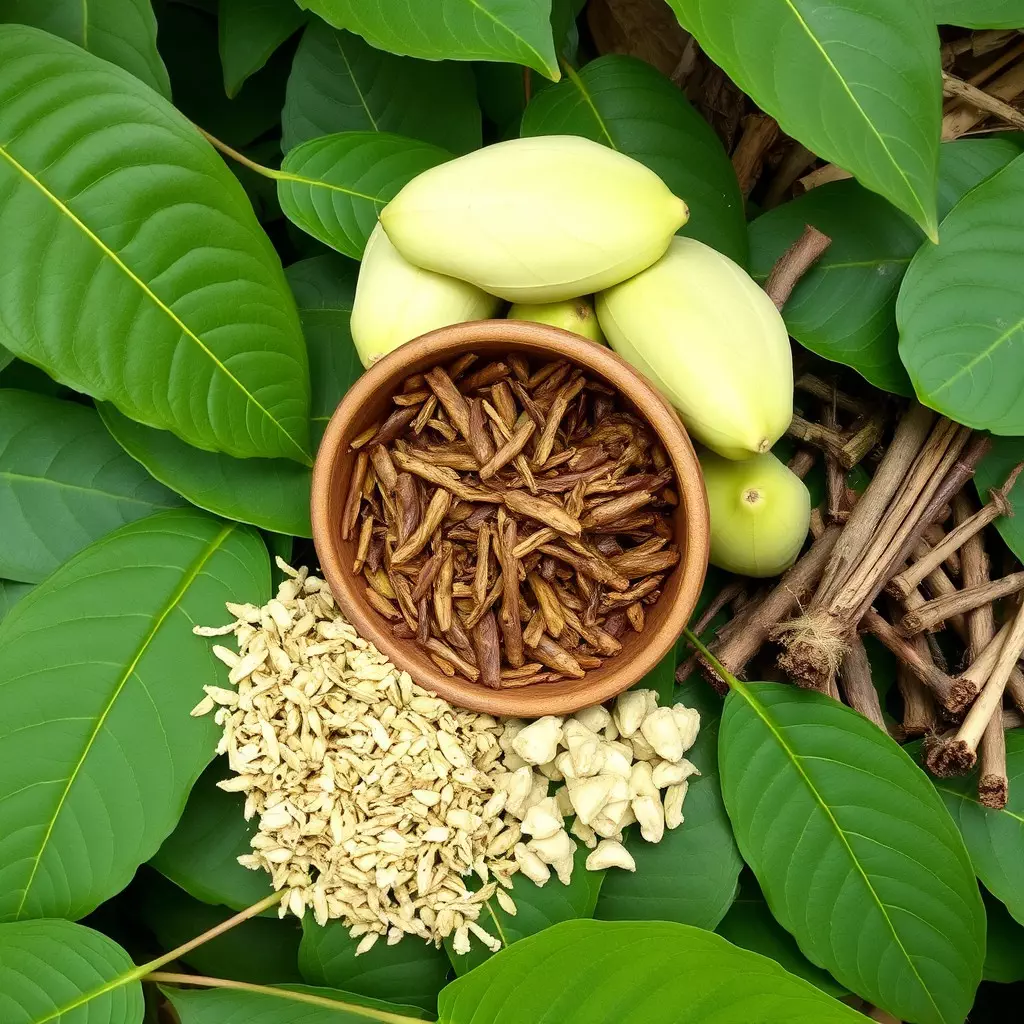Chronic fatigue syndrome (CFS) is characterized by severe, unexplained fatigue that isn't relieved by rest and affects daily life. While the exact causes of CFS are unknown, both genetic and environmental factors may contribute. Symptoms can include disrupted sleep patterns, cognitive issues, and other health complications. For those managing CFS, there is growing interest in alternative treatments, with discount kratom emerging as a potential adjunctive therapy. Kratom, sourced from the Mitragyna speciosa tree, contains active compounds like mitragynine and 7-hydroxymitragynine, which interact with opioid receptors to offer pain relief and mood enhancement. Its stimulating effects may help alleviate CFS symptoms by improving energy levels and managing chronic pain. However, it's essential to consult healthcare professionals before using discount kratom due to its potential interactions with other substances and the need for careful dosing to ensure safety and efficacy. Preliminary findings and patient testimonials suggest its benefits, but more research is necessary. Discount kratom could be a valuable addition to a holistic treatment plan for CFS, provided it's used responsibly under professional guidance.
Chronic fatigue syndrome (CFS) presents a complex challenge, leaving many sufferers in search of effective management strategies. Emerging discussions surround the potential role of kratom, a botanical compound gaining attention for its therapeutic properties. This article delves into the science behind CFS and examines how kratom might offer relief. We will explore the beneficial aspects of kratom that could alleviate symptoms, followed by guidelines on incorporating discount kratom responsibly into your health regimen. Through a scientific lens, we aim to provide valuable insights for those navigating the challenging landscape of CFS management.
- Understanding Chronic Fatigue Syndrome and Kratom's Potential Role in Management
- Exploring the Therapeutic Properties of Kratom for CFS Symptoms
- Safely Integrating Discount Kratom into Your Chronic Fatigue Syndrome Regimen
Understanding Chronic Fatigue Syndrome and Kratom's Potential Role in Management

Chronic fatigue syndrome (CFS) is a complex and often debilitating condition characterized by profound fatigue that is not relieved by rest and affects multiple body systems, leading to a significantly reduced ability to engage in pre-illness activities. The etiology of CFS remains elusive, with both environmental and genetic factors potentially contributing to its onset and progression. Patients with CFS often experience a myriad of symptoms, including unrefreshing sleep, impaired memory or concentration, an array of neurological problems, and a range of other health issues. As researchers and healthcare professionals continue to explore effective management strategies for CFS, alternative therapies have garnered attention, with kratom emerging as a potential adjunctive treatment option.
Kratom, derived from the leaves of Mitragyna speciosa, a tropical evergreen tree native to Southeast Asia, has been traditionally used for its stimulant and analgesic properties. Its active components, mitragynine and 7-hydroxymitragynine, interact with the opioid receptors in the brain, potentially offering pain relief and mood enhancement. For individuals managing CFS, the balanced effects of kratom may provide a modicum of symptomatic relief. While scientific research is still evolving regarding kratom’s efficacy for CFS symptoms, anecdotal evidence and some preliminary studies suggest that it may help alleviate pain and improve energy levels, which are critical issues for those with the syndrome. Discount kratom options can make this herbal remedy more accessible to a broader range of individuals seeking relief from CFS-related fatigue and discomfort. As with any treatment, careful consideration and medical consultation are essential when incorporating kratom into a holistic management plan for chronic fatigue syndrome.
Exploring the Therapeutic Properties of Kratom for CFS Symptoms

Chronic fatigue syndrome (CFS) is a complex and often debilitating condition characterized by profound fatigue that is not relieved by rest. Patients with CFS experience a significant reduction in their quality of life, and finding effective management strategies is crucial for improving their daily functioning. Recent explorations into the therapeutic properties of kratom have surfaced as a potential avenue for managing symptoms associated with CFS. Kratom, derived from the leaves of Mitragyna speciosa, has been traditionally used in Southeast Asia for its stimulant and sedative effects. Modern research suggests that kratom may offer multifaceted benefits due to its interaction with the brain’s opioid receptors, which could potentially alleviate the chronic pain and mood disturbances often experienced by individuals with CFS.
The use of kratom for managing CFS symptoms has been met with mixed reactions in the medical community, yet its potential as a natural alternative to conventional medications is gaining attention among those seeking relief. Discount kratom options have made this treatment more accessible to a broader range of individuals, facilitating a wider scope of experimentation and study. Proponents argue that kratom’s alkaloids, including mitragynine and 7-hydroxymitragynine, may help manage the fatigue and improve mood and pain tolerance in CFS patients. However, it is imperative to approach the use of kratom with caution, as its effects can vary significantly among users and its long-term safety remains under investigation. Individuals considering kratom for CFS management should consult healthcare professionals to ensure safe and effective use, and to explore how it might complement other therapeutic approaches in their overall treatment plan.
Safely Integrating Discount Kratom into Your Chronic Fatigue Syndrome Regimen

When exploring alternative approaches for managing Chronic Fatigue Syndrome (CFS), many individuals turn to natural supplements such as discount kratom. Kratom, a tropical evergreen tree native to Southeast Asia, has been traditionally used in its indigenous regions for its stimulating and analgesic properties. For those with CFS, the energy-boosting potential of discount kratom can be particularly appealing. However, it’s crucial to approach its integration into your regimen with caution. The right dosage and strain are key; for instance, Maeng Da and Bali strains are often favored for their balanced effects that may help alleviate fatigue without overstimulating the body.
Before incorporating discount kratom into your management plan, consult with a healthcare provider to ensure safety and appropriateness for your condition. Kratom’s interaction with other medications or supplements must be considered, as it can affect different systems in the body. Additionally, starting with a low dose and monitoring your response is essential. Pay close attention to how your body reacts, as kratom can have varying effects from person to person. It’s also important to adhere to recommended guidelines for use, including frequency and amount, to avoid tolerance or dependence. With careful consideration and professional guidance, discount kratom can be a viable addition to a holistic CFS management strategy, offering relief and potentially improving overall quality of life.
Chronic fatigue syndrome (CFS) presents a complex challenge for both patients and healthcare providers. The exploration of kratom’s therapeutic properties suggests a promising avenue for managing some CFS symptoms, particularly when responsibly incorporated into one’s health regimen with products like discount kratom. This article has delineated the potential role of kratom in CFS management, highlighting its unique alkaloids that may offer relief from fatigue and pain. It is imperative for individuals to approach the use of kratom with caution, adhering to safe dosage guidelines and consulting healthcare professionals. As research continues to evolve, the potential benefits of discount kratom in CFS management warrant further investigation, offering a glimmer of hope for those affected by this debilitating condition.






